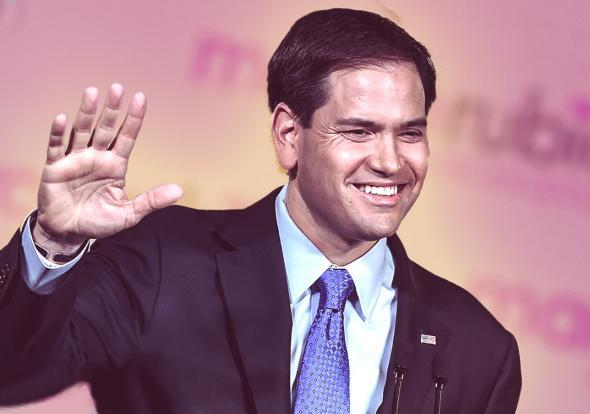If Jeb Bush were Jeb Jones or Jeb Johnson, he might be a George Pataki or Jim Gilmore—an insignificant, if not irrelevant, former governor seeking the Republican nomination. But he’s a Bush—the third to run for president—and that comes with “free stuff”—the unearned advantage of dynastic ties that will always keep you from becoming Jeb Nobody. And he’s had that leg up since well before he made his presidential run official. Jeb entered the race with checks from Bush family donors and help from Bush family advisers. Indeed, his super PAC raised massive sums in the first few months of the year, almost all on the strength and reliability of his name.
But Jeb is yet to prove that strength or reliability. Whether it’s his rhetoric on immigration (“Frankly [‘anchor babies’] is more related to Asians”) or black Americans (“Our message is one of hope and aspiration. It isn’t one of division and ‘Get in line and we’ll take care of you with free stuff,’ ”), Bush has shown a tin ear. He’s demonstrated an even worse instinct for political conflict, withering against Donald Trump and other outsider candidates. He’s at 8.7 percent in national polling averages and holds high unfavorables with voters overall.
As such, reports the Washington Post, those early donors are beginning to waver, unsure if they should stick with Bush for the duration. “Jeb Bush is entering a critical phase of his Republican presidential campaign, with top donors warning that the former Florida governor needs to demonstrate growth in the polls over the next month or face serious defections among supporters,” notes the Post.
If Bush were one-of-a-kind—the only “establishment” candidate in the race—this wouldn’t be a huge problem. But he has a strong—arguably gifted—opponent in his former protégé, Marco Rubio.
His hyped announcement aside, the Florida senator has taken an understated approach to his campaign. He has been doing small events in the crucial primary states of Iowa and New Hampshire as well as his home state of Florida. His focus has been policy: He has released a tax plan, outlined a foreign policy vision, and issued a plan for paid family leave. Other than minor spats with Donald Trump, he avoids conflict with other candidates. And in his fight with Trump, he’s landed a real blow. “He had a really bad debate performance last week,” said Rubio of the real estate mogul during a recent radio interview. “He’s not well-informed on the issues. He really never talks about issues and can’t have more than a 10-second soundbite on any key issue. … I think he’s kind of been exposed a little bit over the last seven days, and he’s a touchy and insecure guy. So that’s how he reacts, and people can see through it.”
More importantly, he is broadening his coalition in the party. After Wisconsin Gov. Scott Walker left the race, Rubio moved quickly and scooped most of his donors to his side. On Friday, he won a warm welcome from activists at the Values Voter Summit in Washington, where he announced the resignation of House Speaker John Boehner to an enthusiastic crowd of social conservatives. He’s backed by a host of Republican foreign policy minds, and he’s a favorite of “reform” conservatives who want more, and stronger, “pro-family” policies that are meant to address kitchen-table economic issues. Rubio has shined at the debates and performed well in events like the recent Heritage Action forum in South Carolina.
As for polls, Rubio has been on the upswing, surpassing the other grassroots and establishment candidates—other than Bush—with 7.6 percent in the Huffington Post average of national polls. He has high favorables—58 percent of Republicans like him in the latest CNN poll—and, as a potential nominee, he’s acceptable to most GOP voters. No, he’s not yet the favorite to win—especially if we’re judging by traditional measures like fundraising and endorsements—but it’s easy to imagine a Bush-Rubio race for the establishment vote, where Rubio pulls ahead on the strength of his skill and talent as a politician.
With that said, we also shouldn’t underestimate Jeb. Between his campaign and his affiliated super PAC, Right to Rise, Bush has about $120 million. His brother George W. Bush is prepared to fundraise for his campaign, and he can expect even more donations in the next few months. He still leads in endorsements—although that could change if Rubio continues to surge ahead—and his super PAC is spending $24 million on ads in Iowa, New Hampshire, and South Carolina.
If you want an analogy for this race, your best choice is the 2008 Democratic primary. There, a strong—but far from dominant—Hillary Clinton ran a lackluster campaign against a savvy and popular newcomer, Barack Obama, who leveraged skill, strategy, and the historic nature of his bid to win a close race against the then-senator.
There’s no question Bush can win (for a while, in fact, Clinton could too). But he has to step his game up, and fast; Rubio is on the rise, and Jeb—more than anyone else—is his target.
